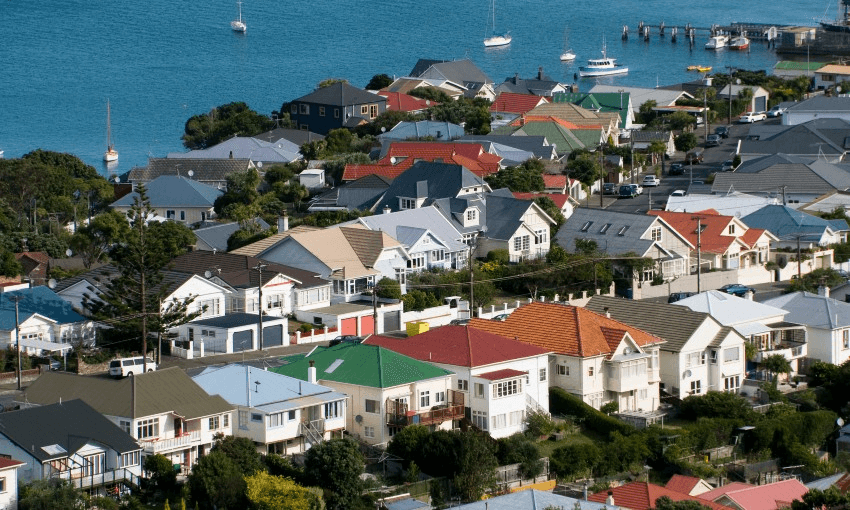Stats NZ released a report yesterday that provides the most comprehensive view to date on housing in New Zealand. The findings are not pretty.
It’s no surprise to anyone to hear that New Zealand’s housing is beset by great many problems. But it’s quite different to see the extent of the crisis laid out and quantified in a 150-page report.
Released yesterday by Stats NZ, Housing in Aotearoa: 2020 gives a thorough overview of housing across the country by pulling data from the 2018 census, 2020 quarterly employment survey, the 2019 economic survey and social and pilot housing surveys from the past two years.
The report is broken down into seven parts, each looking at housing from different angles: affordability, habitability, supply and demand, rentals, stock, use and the environmental impact. All in all, it tells a stirring tale of how interwoven our lives and societies are with the homes we live in, and how the current woes are directly linked to the burgeoning inequality and diminishing quality of life of many New Zealanders.
What are the key findings?
Probably the biggest finding from the report confirms what many of us already suspected – the rate of homeownership has fallen.
According to the data, the proportion of households that own the house they live in dropped to 64.5% in 2018 – the lowest rate since 1951 – with younger people disproportionately affected. Since 1990, the rate of home owners in their late 20s plummeted from 61% to 44% and those in their late 30s from 79% to 59%. Surprisingly, things have been relatively stable over the past decade, and the biggest declines occurred during the 1990s, when unemployment was at its highest level since the great depression.
The data was even more skewed when viewed across ethnicities. While every ethnicity experienced a decline in home ownership, Māori and Pasifka households saw the most severe drop and were more likely to live in damp and unhealthy, or overcrowded homes.
While the decline occurred in every region in New Zealand, it was more severe in cities, with the largest drop occurring in Auckland.
What about rentals and housing affordability?
Naturally, with the rate of homeownership declining, the proportion of those who rent has increased. One third of New Zealand households – 1.4 million people – rented the home they lived in 2018.
Again, it’s no shock to read that the cost of housing is rising. Perhaps the most disconcerting finding, however, was that the amount of households putting aside 30% of their weekly income to rent increased from 20% of renters in 1988, to 40% in 2019.
Although house prices have been rising at a faster rate than wages over the past five years, owner-occupiers have been having a much better time of it because of low interest rates. According to the report, the low cost of borrowing means mortgage interest payments are estimated to be similar in 2020 to those in 2010, despite the increase in median house prices over that period.
While higher house prices generated wealth for homeowners, they have naturally made it harder for aspiring homeowners to get onto the property ladder.
How damp, cold and crowded are our houses?
Very. According to the 2018 census data, which thoroughly questioned New Zealanders on the quality of their homes, around one in five homes were damp sometimes, and one in five New Zealanders lived in a home that was always or often too cold in winter, but this rose to around two in five Pasifika and Māori.
Often the people living in these damp, cold and mouldy houses suffered more frequently from cold, flu and asthma, had poor mental wellbeing, and rated their overall life satisfaction poorly.
These problems were more common in rentals or crowded houses than those that were owner occupied, which were more likely to have efficient heating like heat pumps and wood burners.
On a more positive note, the 2018 Pilot Housing Survey, from which the report pulled its data, showed improvements in insulation and more efficient forms of heating among new dwellings.
In terms of crowdedness, around one in nine New Zealanders lived in a crowded house in 2018, with the highest rates of crowding among Pasifika people.
Crowding was highest in the Auckland and Gisborne regions; within Auckland, one in four households in Mangere-Otahuhu and Otara-Papatoetoe were crowded.
What about the relationship between housing and the environment?
Due to the monumental amount of natural resources involved in housing construction and use, housing has a considerable influence on greenhouse gases and the environment.
The New Zealand construction sector represented about 16% of total greenhouse gas emissions in 2018. Because new houses are typically larger than older ones – a third of houses now have four or more bedrooms compared with one-fifth in 1991 – land use, and therefore the carbon footprint, increases. The poor quality of many old houses meant that occupants were having to use a great deal more energy to heat or maintain them.
And what does the report have to say about housing supply and demand?
The report found that around one-third of New Zealand’s homes have been built in the last 20 years. However, supply is still not keeping up with demand or New Zealand’s population growth, and still lags behind the 1970s in relation to new dwelling consents per head of population.
While houses are becoming larger, the report noted an increase in the diversification of housing stock, with more multi-unit dwellings being built. Around 40% of all new dwellings consented since mid-2019 were multi-unit.



